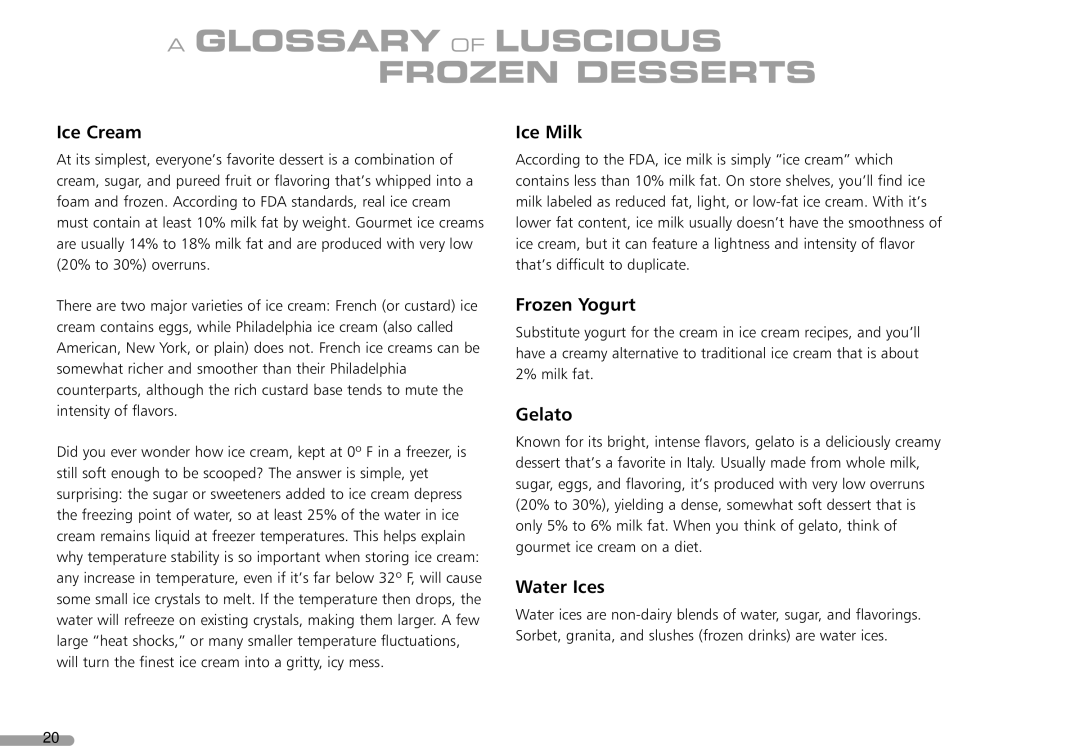Frozen Dessert Maker, 165, KPFD200 specifications
The KitchenAid KPFD200 is a stylish and versatile food processor designed to enhance culinary creativity in any kitchen. With its combination of sleek design and powerful performance, it caters to both novice cooks and seasoned chefs alike. This food processor showcases a blend of innovative technology and practical features, making meal preparation more efficient and enjoyable.One of the standout features of the KPFD200 is its robust 2.0 horsepower motor, capable of handling a variety of tasks with ease. Whether you’re chopping vegetables, mixing dough, or pureeing sauces, this appliance delivers consistent results. Its large 13-cup work bowl offers ample space for preparing large batches of food, allowing users to tackle everything from weeknight dinners to holiday feasts without needing multiple rounds.
The KPFD200 is equipped with an array of stainless-steel blades and discs designed for precision and durability. The sharp S-shaped blade is perfect for chopping and mixing, while the reversible shredding disc allows for fine or coarse shredding. The slicing disc also provides adjustable thickness settings, ensuring that every ingredient is prepared to perfection.
Another notable technology integrated into the KPFD200 is the ExactSlice system, which offers precise slicing control. This feature adjusts the thickness of the slices with an easy-to-use slider, giving the user complete control over the cutting process. This technology not only enhances versatility but also minimizes food waste by ensuring each slice is uniform.
Ease of use is paramount in the design of this food processor. The KPFD200 incorporates a soft-start feature that gradually increases power to the attachment, preventing splatters and ensuring a smoother processing experience. Additionally, the easy-to-clean design is complemented by dishwasher-safe components, making post-cooking clean-up quick and simple.
The KitchenAid KPFD200 also boasts a professional-grade construction, ensuring longevity and reliability. Its sturdy base minimizes vibration during operation, contributing to a quieter cooking experience. With its user-friendly interface and numerous attachments, this food processor can seamlessly adapt to various culinary tasks, making it an essential addition to any kitchen.
In summary, the KitchenAid KPFD200 food processor combines power, precision, and practicality in one streamlined appliance. With its impressive motor, versatile cutting attachments, and innovative features, it empowers users to explore their culinary passions with confidence and ease. Whether making everyday meals or gourmet dishes, the KPFD200 stands out as a trusted companion in food preparation.

